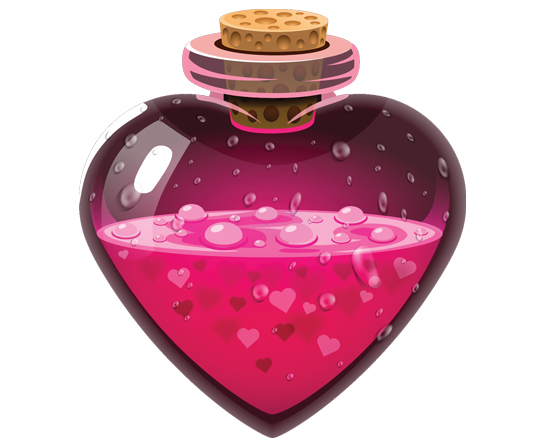Words Hannah May-Lee Wong
Love can be a mystery. It is the one emotion that happens so naturally, yet it consumes us, and confuses even the most rational of us. It is highly addictive—a love that will last is something we all dream of having.
Love gets the better of us when it leads to heartbreak. Yet when things go right, it rewards us with the best of times, and with the most wonderful of memories. But what is the point of all this? Well, for most, the ultimate goal is to find acceptance, love in return and a suitable partner for long-term companionship.
Dr Fisher is an anthropologist, renown for her research using brain scans to study romantic love and how it affects the brain. She deduced that there are three main stages in a romantic relationship, and each stage involves different chemicals in the brain.
STAGE 1: LUST
Lust is defined as having a strong sexual desire for someone. This stage is fleeting, as it is merely strong attraction lovers feel when they first get to know each other. This exciting stage is driven by testosterone in men and oestrogen in women. Although lust is the most elementary stage in a relationship, it does not necessarily lead to long-term love. From an evolutionary standpoint, it is the basic in-built drive for us as a species, to feel the need to reproduce and pass on our genes.
STAGE 2: ATTRACTION
This stage gets a little less carnal, and a little more human. It is the force that drives craving, strong desire and in some cases, obsession amongst lovers. People at this stage may find themselves: with sweaty palms, unable to eat or sleep, and constantly thinking about being with the one they love. When you think of the science though, this all makes sense. Attraction is driven by norepinephrine, dopamine and serotonin. These are related closely to the reward system in the brain.
In an interview with Elsevier Connect, Dr Fisher says, “Dopamine is key. This neurotransmitter is the central component of the brain’s reward system—the brain system that gives the lover focus, energy, motivation, and craving for the beloved. I can’t think of any bigger reward than falling in love.” Dopamine in particular, is released when we do things that make us feel good. Therefore, being in love can be addictive. Norepinephrine makes us energetic and is responsible for decreased appetite and those sleepless nights. An increased surge in these two chemicals results in that giddy, elated feeling one might have when being in love.
Though more research is needed to confirm, it is also believed that serotonin decreases during this stage of love, as those with obsessive compulsive disorder (OCD) also have low levels of serotonin. This could explain the strong desire and obsessive feelings, felt in many of those in love.
STAGE 3: ATTACHMENT
Attachment is what seals the deal in a long-term relationship. After approximately 4 years in a relationship, dopamine decreases and is replaced by hormones oxytocin and vasopressin. Oxytocin is a hormone highly associated with human relational bonding. It is released in high amounts during sex, childbirth and breastfeeding. This probably is the main reason why sex distinctively bonds couples together like no other.
Scientists believe that vasopressin plays a big role in long-term monogamous relationships. Animal studies have shown that when naturally monogamous male prairie voles (a species of small rodent found in North America) were fed vasopressin suppressors, they began neglecting their partners, which in normal circumstances they would mate with for life.
SO, WHAT DO WE DO NOW?
While this information is revolutionary and certainly can change the way we view love, it is not the be-all and end-all. As with anything else in the human body, relationships are complex and there are so many other factors besides brain chemicals that affect human relationships.
We don’t know everything there is to know about love and relationships yet. But knowing what primarily goes on in the brain makes love less of a mystery, to our own advantage. As Dr Fisher puts it, “The more we come to know about the brain, I believe, the more we will be able to make happy long-term partnerships.”
References:
- Psychology Today. The Science of Love and Attachment. Retrieved from: https://www.psychologytoday.com/us/blog/the-mindful-self-express/201603/the-science-love-and-attachment.
- Science in the News. Love, Actually: The science behind lust, attraction, and companionship. Retrieved from: http://sitn.hms.harvard.edu/flash/2017/love-actually-science-behind-lust-attraction-companionship/.
- Anthropologist and love expert Helen Fisher on the mysteries of love. Retrieved from: https://www.elsevier.com/connect/anthropologist-and-love-expert-helen-fisher-on-the-mysteries-of-love.









